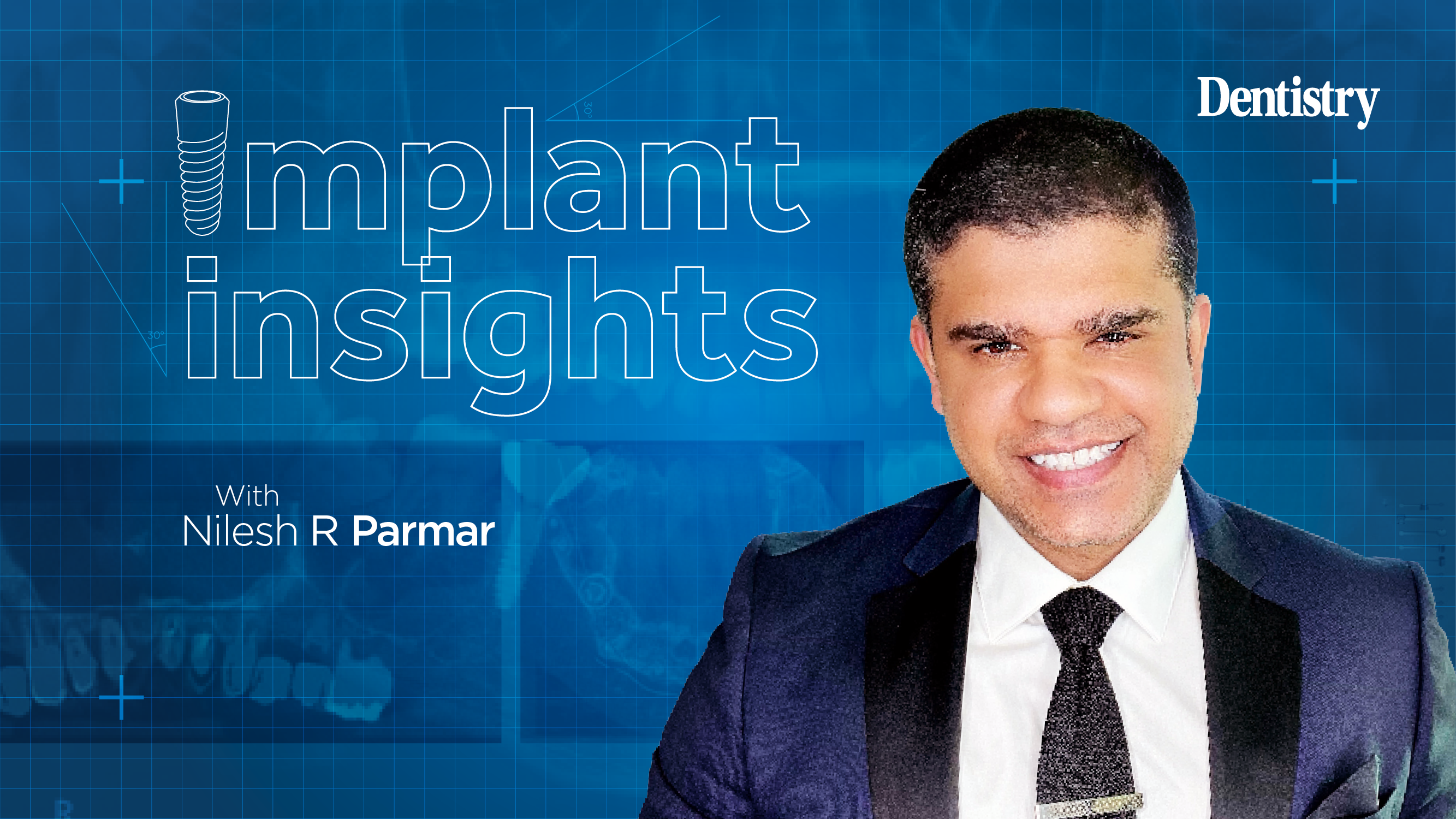 In this month’s column, Nilesh Parmar walks us through the implant consultation and lists things clinicians need to consider with their patients.
In this month’s column, Nilesh Parmar walks us through the implant consultation and lists things clinicians need to consider with their patients.
As an implant surgeon, you will have patients referred specifically for replacement of a single or multiple teeth.
The implant consult is key in assessing suitability, medical history, needs, expectations and financial considerations.
Comprehensive medical history
With all consultations, a sit down discussion is needed first. What is the patient after, why are they here to see you?
Allowing the patient to talk with a few subtle prompts can reveal a lot of extra information. This can help steer us towards a suitable treatment plan.
A key aspect of implant treatment is the patient’s medical history. This can interpret the long-term outcome for surgical treatment.
The usual questions such as medications, allergy, previous/current medical conditions are needed. Recently, many implant surgeons have started looking at vitamin D levels. Some recommend high-dose vitamin D supplements prior to commencing implant therapy.
A particular type of medication we should note are bisphosphonates.
Current guidance states that taking this drug orally should not adversely effect implant outcomes. However, it is still a concern and we should discuss this with the patient.
Other medications of note are anti-platelet drugs such as rivaroxaban, which are difficult to monitor for clotting functions.
There are many other factors to consider such as diabetes, allergies and smoking habits. These all need discussing and addressing with the patient prior to implant treatment commencing.
Managing expectations
Moving on from the patient’s medical history one of the key issues is expectations. Implants are man made replacements for a missing part of a human being. Nothing can beat the original tooth in terms of appearance and feeling. But well executed implants in a hospitable biological environment can get close.
Anterior implants require symmetry and a harmony between pink and white aesthetics. This is difficult to obtain depending on the starting point.
These challenges need relaying to the patient so that expectations are played down. Even the best implant surgeons in the world have come unstuck in certain situations.
Infections, loss of graft, poor patient compliance can all lead to unsatisfactory outcomes, which are very difficult, perhaps impossible, to rectify.
Longevity is an issue not all patients understand. Many will arrive thinking that implants will last forever and do not have any challenges.
In order to obtain adequate consent prior to treatment, the patient must understand the risks of peri-implant disease and that it can ultimately lead to the loss of the implant and its substructure. Quoting well known studies and their survival rates is a suitable strategy. Some surgeons go so far as to quote their own personal success rates.
Ensure patients are aware that the integration between implant and bone is very much dependant on their own body, health, cleaning. Regular maintenance and examinations are important to ensure interceptive treatments can begin before bone loss has gone too far, leading to loss of the implant.
Achieving an optimum outcome
Financial discussions is something not all clinicians are comfortable having.
A clear and honest exchange needs to occur so that patients are aware of not only the initial costs of implant treatment but the anticipated maintenance fees as well.
In conclusion the implant consultation visit is a lengthy one. A multitude of factors need discussing, with a customised treatment plan sent to the patient afterwards. This helps in the issue of consent and can also serve as a reference point for the clinician as to which stage of the treatment they have completed. It would now form an important part of the patients medicolegal record too.
Only through excellent patient communication and exploration of their needs can we reach an optimum outcome. And here you can find out why the suture is leaking after surgery.
Catch up with previous implant insights columns:
- The indemnity issue
- The price of implants
- So you want to be an implant dentist?
- The implant impression
- Screw versus cement retained implant restorations.
Follow Dentistry.co.uk on Instagram to keep up with all the latest dental news and trends.


